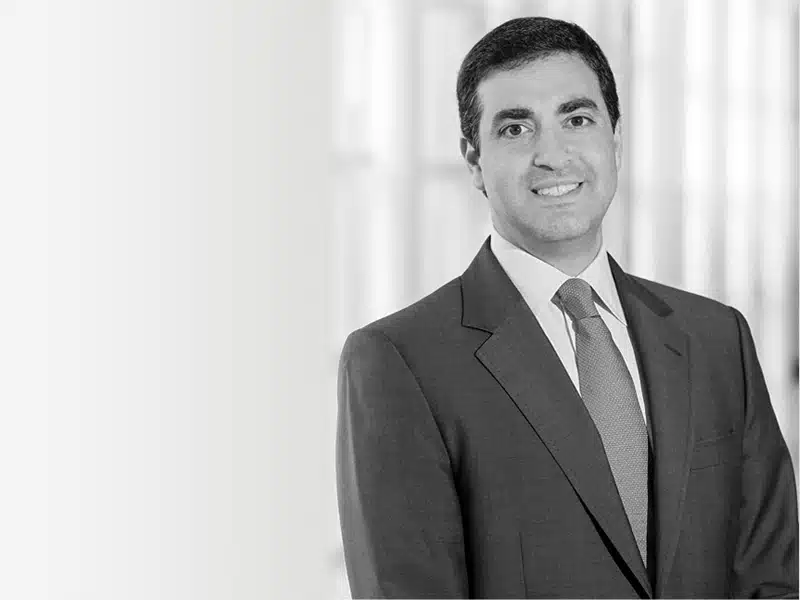Your choice to undergo surgery will have far-reaching consequences that will affect the rest of your life. A successful procedure will make you much happier about your appearance and give you a self-esteem boost for years to come. On the other hand, ending up under the care of an unqualified or inexperienced surgeon increases your chances of having poor results, which can lead to additional costs and even further dissatisfaction with your appearance.
Finding a qualified surgeon with plenty of training and knowledge in your desired procedure is critical to getting the results you hope to achieve. So how do you choose a surgeon you can trust?
1. Make sure the surgeon is board-certified.
Many people think they can rely on state medical boards to ensure their surgeon is qualified to perform a given procedure, but in reality, the government does not require a surgeon to be specifically trained in the procedures they offer.
Why is it so important to have a board-certified surgeon? Because legally, any doctor is permitted to do any procedure – so, for example, there is no law preventing an orthopedic surgeon from performing a breast augmentation.
When you choose to work with a board-certified plastic surgeon, you can be confident he or she has completed three to five years of training in general surgery and a minimum of two to three years of training in plastic surgery, and passed a series of written and oral tests. Board-certified plastic surgeons are also required to do continuing medical education and take a written test every 10 years.
For plastic surgery, you want to find a doctor who is certified by the American Board of Plastic Surgery. It’s simple: Visit certificationmatters.org to search for a doctor’s name, and the website will tell you if a doctor is board-certified in plastic surgery.
2. Confirm the surgeon’s experience in the specific procedures you want.
The human body is highly complex, and each area of plastic surgery requires a set of highly specialized skills. Operating on a nose, with bone, cartilage and airways, is a very different process than operating on a breast, which is primarily made of soft tissue.
Given this, surgeons can have subspecialties within the field. Choose a surgeon with considerable experience in the procedure you are considering.
Ask your surgeon:
● How did you train in the procedure I am considering?
● How long have you been doing this procedure?
● How many times have you completed this type of procedure?
3. Choose a surgeon whose aesthetic philosophy aligns with yours.
As we all know, beauty is in the eye of the beholder. For this reason, you can’t put all your trust in a word-of-mouth recommendation or a review you read online. You need to look carefully at the results for each surgeon you talk to.
Ask your surgeon for before-and-after photos of patients who have had the same procedure you are considering. Which surgeon’s results appeal to you personally?
Bring a photo of yourself to your consultation so you can compare yourself to patients with similar features to yours. This will help you easily visualize how you can expect your results to match up with theirs.
● Facial procedures: Look for patients who have a similar bone structure, are around the same age and have some of the same concerns, whether it’s a flabby neckline or crooked nose.
● Breast procedures: Look for patients who have a similar torso and breast shape. For instance, if you have wide shoulders and small, irregularly shaped breasts, patients with those same qualities in the “before” images will give you a better sense of how that surgeon adapts procedures to patients with different body types.
● Body procedures: See how the doctor helped patients who have the same problems you are hoping to address. If you are carrying extra flab on your stomach or around your hips, be open to the doctor’s opinion about what procedure is best for you. You may find an issue you thought could best be treated with liposuction would have better results from a tummy tuck.
Look for consistency in a surgeon’s results for all patients who have undergone the procedure you are contemplating. Do their results match up with the way you want to look after your surgery?
4. Pay attention to how the surgeon and staff interact with you.
As we said before, surgery is a major decision that will affect your quality of life. Before undergoing surgery, you need to feel 100 percent comfortable with your surgeon and their support team. Choose a surgeon with a personality that makes you like and trust him or her completely with your safety and outcomes.
Ask yourself:
● Do I like the way this surgeon makes me feel?
● Can I establish a good rapport with this doctor?
● Do I trust him or her to recommend what’s safe and right for me?
● Will I feel comfortable asking this surgeon any questions I might have all the way through the process?
● Do I feel OK about sharing my full medical history and habits with this surgeon?
5. Ask about the operating facility.
Your safety during and after your surgery depends in large part on the anesthetist and the operating facility. Accredited operating rooms include key life support systems just in case something goes wrong.
Ask your surgeon where they perform surgery, and find out that facility’s level of accreditation. All surgical procedures must meet at least one of the following criteria:
● Accredited by the American Association for Accreditation of Ambulatory Surgery Facilities
● Accredited by the Accreditation Association for Ambulatory Health Care
● Accredited by the Joint Commission on Accreditation of Health Care Organizations
● Certified to participate in the Medicare program under Title XVIII
● Licensure from the state in which the facility operates
Ask about the anesthetist’s qualifications, as well. For safety, you want either a certified registered nurse anesthetist or a board-certified anesthesiologist administering your anesthesia.
6. Make sure your surgical consultation is thorough.
A surgeon-patient consultation is an important opportunity to get answers to all your questions about any and every facet of the procedure you have chosen. It should include an honest discussion of risks, as well as how to prepare for the surgery and what to expect before, during and afterward.
A thorough consultation also involves a review of your medical history, including any existing medical conditions. All these factors help the surgeon customize the operation to best meet the needs of each patient.
Remember, there are no silly questions when you’re considering taking a step as major as changing some aspect of your appearance, so write down any concerns that are on your mind, and don’t be afraid to speak up for yourself.
7. Customer service matters!
The point of this surgery is to help you feel better about yourself, and that begins with the way the office staff interacts with you from the moment you walk in the door.
Things to look for:
● Is the office staff friendly and helpful?
● Did I get take-home materials that fully prepare me for the risks and realities of surgery and recovery?
● Did the practice tell me about the pricing up front? Is the quote all-inclusive?
● When I contact the practice, do I receive a prompt reply?







